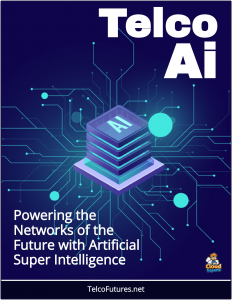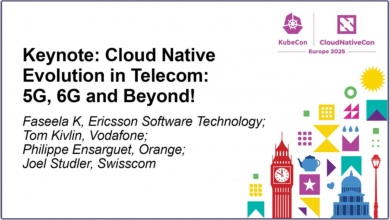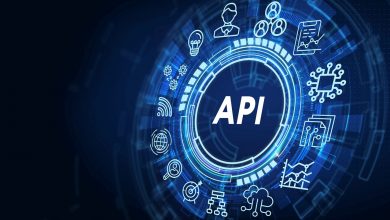 The telecommunications industry is at a turning point, evolving from traditional telcos into dynamic techcos to meet the demands of an AI-first future.
The telecommunications industry is at a turning point, evolving from traditional telcos into dynamic techcos to meet the demands of an AI-first future.
For decades, telcos have been the backbone of global connectivity, delivering voice, data, and video through robust networks from 2G to 5G.
In the feature video Tatsuya Hamada, CEO of KDDI Digital Life and Sanjay Kaul, CEO of Circles Aspire, explain why, for them, telco transformation is no longer optional and is now, in fact, a race. They also discuss what it means to evolve from being infrastructure heavy to AI native.
AI Telco Transformation
However, the rise of artificial intelligence is redefining their role. No longer just providers of bandwidth, telcos must become agile, data-driven organizations that leverage AI to deliver intelligent, personalized services. This transformation is critical to unlocking new revenue streams, enhancing efficiency, and meeting soaring customer expectations in a world where data and intelligence drive value.
The catalyst for this shift is AI’s transformative potential. With global AI spending projected to exceed $500 billion by 2027 and 5G networks expected to handle 80% of mobile data traffic by 2030, telcos have a unique opportunity to integrate AI into their core operations.
By building AI-native infrastructures, telcos can optimize networks in real time, reducing outages and improving reliability. For instance, companies like Verizon are already using AI to manage 5G network traffic, ensuring low latency for applications like autonomous vehicles.
Additionally, migrating to cloud-native architectures through partnerships with hyperscalers like AWS or Google Cloud enables telcos to scale AI workloads efficiently, paving the way for innovative services like smart city solutions or IoT-enabled industrial applications.
Data is the lifeblood of this transformation. Telcos generate billions of data points from network usage and customer behavior, which, when harnessed through unified data platforms and advanced analytics, can predict churn, personalize offerings, and create new revenue opportunities.
Vodafone’s success in reducing churn by 15% through AI-driven insights demonstrates the power of treating data as a strategic asset. However, this requires robust cybersecurity and ethical AI practices to maintain customer trust. Equally important is fostering an innovation ecosystem by exposing network capabilities through open APIs and collaborating with startups and tech giants, as seen in T-Mobile’s partnership with NVIDIA to develop AI-powered 5G use cases.
Roadmap to the AI Native Telco
The journey to becoming a techco demands a customer-centric approach and a workforce ready for change. AI can enhance customer experiences through hyper-personalized services, like Orange’s 40% reduction in response times.
Meanwhile, reskilling programs, like BT Group’s AI Academy, equip employees with AI and data literacy. Despite challenges like legacy systems and regulatory hurdles, telcos must act now to reimagine connectivity as a platform for intelligence and innovation, leading the charge in an AI-first world.



